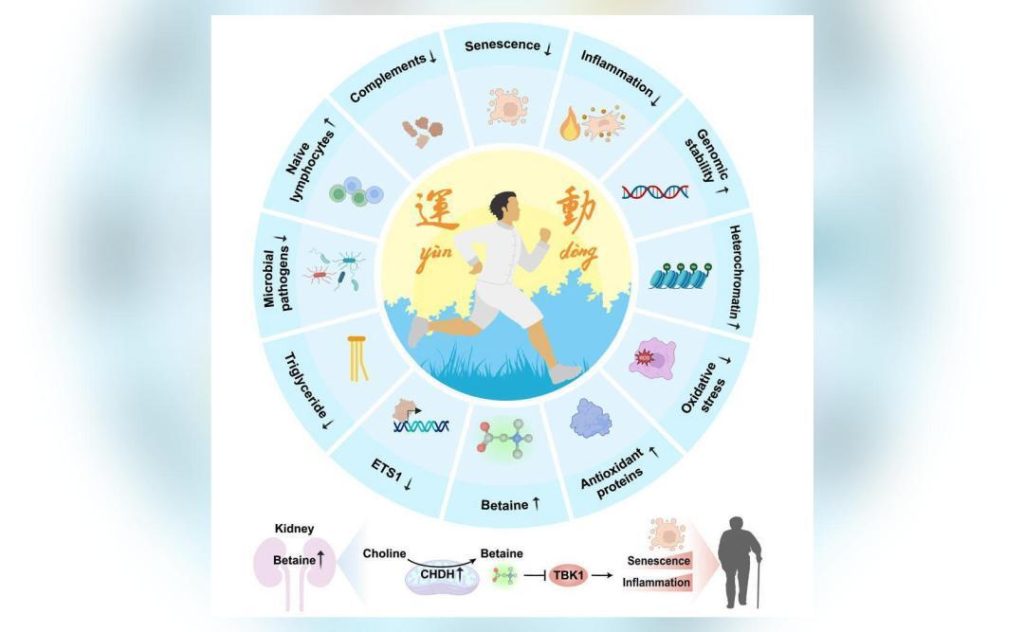
Scientists Identify Compound that Mimics Exercise’s Anti-Ageing Benefits
As we age, our bodies undergo a series of natural changes that can affect our physical and mental health. One of the most significant consequences of ageing is the accumulation of cellular damage, which can lead to a range of age-related diseases. Research has shown that regular exercise can help mitigate the effects of ageing by promoting cellular health and reducing the risk of age-related diseases. Now, scientists have made a groundbreaking discovery that could potentially revolutionize our approach to ageing: a compound called betaine, naturally produced by the kidneys, can mimic the anti-ageing benefits of long-term exercise.
A team of Chinese scientists, led by Dr. Xueying Guan from the Shandong University School of Life Sciences, conducted a comprehensive study to investigate the effects of exercise on ageing. The researchers recruited a group of mice and divided them into two groups: one that was subjected to long-term exercise, and another that did not exercise at all. The mice were then observed for a period of six months, during which time their physiological and biochemical changes were closely monitored.
The results of the study were astounding. The mice that exercised regularly showed significant improvements in their physical fitness, muscle mass, and bone density, compared to the sedentary mice. Furthermore, the exercising mice displayed reduced signs of ageing, such as wrinkles, graying hair, and age-related cognitive decline.
But the most remarkable finding was yet to come. The researchers discovered that betaine, a compound produced by the kidneys, was responsible for the anti-ageing benefits of exercise. When they administered betaine to the sedentary mice, they observed similar improvements in physical fitness, muscle mass, and bone density as those seen in the exercising mice.
So, how does betaine work its magic? According to the study, betaine binds to and inhibits TANK-binding kinase 1 (TBK1), a protein that plays a crucial role in the aging process. TBK1 is responsible for activating the unfolded protein response (UPR), a cellular response that occurs when the body detects damaged or misfolded proteins. When the UPR is activated, it can lead to the accumulation of cellular damage, which can contribute to ageing.
By inhibiting TBK1, betaine prevents the activation of the UPR and reduces the accumulation of cellular damage. This, in turn, slows down the kinetics of ageing, allowing the body to maintain its youthful appearance and function for longer.
The implications of this study are far-reaching and have significant potential for the development of new anti-ageing treatments. While exercise is widely recognized as a powerful anti-ageing agent, it can be challenging for many people to maintain a regular exercise routine. Betaine, on the other hand, is a natural compound that can be easily administered orally or through dietary supplements.
Moreover, the study’s findings highlight the importance of maintaining a healthy kidney function. Kidneys play a critical role in the production of betaine, and any kidney damage or disease can lead to a reduction in betaine production, potentially accelerating the ageing process.
In conclusion, the discovery of betaine’s anti-ageing properties has opened up new avenues for research and potential treatment options. As we continue to age, it is essential to prioritize our health and well-being, and this study provides further evidence of the importance of regular exercise and a balanced diet in maintaining a healthy and youthful body.
Source:
https://www.newsbytesapp.com/news/lifestyle/how-does-long-term-exercise-slow-ageing/story






